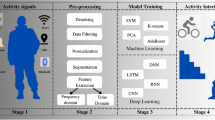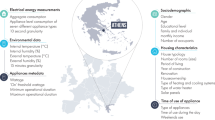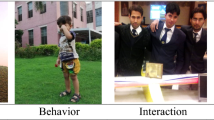Abstract
Accelerometer-based activity recognition (AAR) attracted a lot of attentions due to the wide spread of smartphones with energy-efficiency. However, since accelerometer data contains individual characteristics; AAR might raise privacy concerns. Although numerous privacy preservation approaches, such as ”privacy filtering, differential privacy, and inferential privacy”, have been proposed to conceal sensitive information, unfortunately they cannot address the privacy problem associated with AAR. In this paper, we report our efforts to control the use of the AAR while preserving the privacy. To achieve this task, our method leverages a connection to agglomerative information bottleneck, through which the amount of disclosed data can be compressed so that irrelevant private information can be reduced, and a connection to general privacy statistical inference framework, where both of the privacy leakage and utility accuracy are considered as mutual information. Our experimental results have shown that the proposed solution can greatly reduce privacy leakage while maintaining a relative good utility.










Similar content being viewed by others
References
Kishore, A.R., Latha, T.S., Niveditha, K.: Theoretic information on utility-privacy exchange in databases, Internation Journal of Engineering Research and Applications (IJERA), pp. 15–17 (2015)
Khan, A., Mellor, S., Berlin, E., Thompson, R., McNaney, R., Olivier, P., Ploz, T.: Byond activity recognition: Skill assessment from accelerometer data, UBICOMP (2015)
Bayat, A., Pomplun, M., Tran, D.A.: A study on human activity recognition using accelerometer data from smartphones. In: The 11th international conference on mobile systems and pervasive computing (MobiSPC) (2014)
Makhdoumi, A., Salamatian, S., Fawaz, N., Medard, M.: From the information Bottelenck to the privacy funnel, ArXiv e-prints (2014)
Braun, A., Garriga, G.: Consumer journey analytics in the context of data privacy and ethics. Digital Marketplaces Unleashed, pp. 663–674 (2017)
Williams, B.P., Hickman, R.M.: Privacy filtering of area description file prior to upload (2016)
Luo, C., Fylakis, A., Partala, J., Klakegg, S., Goncalves, J., Liang, K., Sppanen, T., Kostakos, V.: A data hiding approach for sensitive smartphone data. Ubicomp (2016)
Owusu, E., Han, J., Das, S., Perrig, A., Zhang, J.: Accessory: Password inference using accelerometers on smartphone (2012)
Pin Calmon, F.D.U., Fawaz, N.: Privacy against statistical inference (2012)
Han, J., Owusu, E., Nguyen, L.T., Perrig, A., Zhang, J.: Accomplice: Location inference using accelerometers on smartphones (2012)
Lu, H., Huang, J., Saha, T., Nachman, L.: Unobtrusive gait verification for mobile phones. In: Proceedings of the 2014 ACM International Symposium on Wearable Computers (ISWC 14), pp. 91–98 (2014)
Krumm, J.: A survey of computational location privacy. Pers. Ubiquit. Comput. 13(6), 391–399 (2009)
Darakhshan, J.M.: Information-Theoretic Foundations of Differentail Privacy, Foundations and practice of security, pp. 374–381 (2012)
Lockhart, J.W., Weiss, G.M.: The benefits of personalized smartphone-based activity recognition models, In: Proc. SIAM international conference on data mining, society for industrial and applied mathematics, pp. 614–622 (2014)
Sankar, L., Rajagopalan, S., Poor, H.V.: A theory of privacy and utility in databases. arXiv e-prints, [Online]. Available: arXiv:1102.3751 (2011)
Leoni, D.: Non-interactive differential privacy: a Survey (2014)
Enev, M., Jung, J., Bo, L., Ren, X., Kohno, T.: SensorSift: Balancing sensor data privacy and utility in automated face understanding (2012)
Lu, M., Guo, Y., Meng, D., Li, C., Zhao, Y.: An information-aware privacy-preserving accelerometer data sharing. International conference of pioneering computer scientists, engineers and educators, pp. 425–432 (2017)
Fawaz, N., Salamatian, S., Pin Calmon, F.D., Bhanidipati, S.S., Oliveira, P.C., Taft, N.A., Kveton, B.: Privacy against inference attacks under mismatched prior (2016)
Tishby, N., Pereira, F.C., Bialek, W.: The information bottleneck method. In: Proceedings of the 37th annual allerton conference on communication, control and computing, pp. 368–377 (1999)
Slonim, N., Tishby, N.: Agglomerative information bottleneck. In: Proceedings of advances in neural information processing systems, pp. 617–623 (1999)
Ciaran, O’D.: Privacy in context: Privacy issues in ubiquitous computing applications (2008)
Williams, O., McSherry, F.: Probabilistic inference and differential privacy (2014)
Wang, K., Wang, P., Fu, W., Wong, C.-W.: Inferential or differential: Privacy laws dictate[J]. Eprint Arxiv, 2012, arXiv:1202.3686
Asoodeh, S., Alajaji, F., Linder, T.: Notes on information-theoretic privacy. In: Proceedings of 52nd annual allerton conference on communication, control, and computing, Monticello, IL, USA, pp. 1272–1278 (2014)
Shuang, S., Kamalika, C.: Composition properties of inferential privacy for time-series data, CoRR, arXiv:1707.02702 (2017)
Chakraborty, S., Shen, C., Raghavan, K.R., Shoukry, Y., Millar, M., Srivastava, M.: ipShield: A framework for enforcing context-aware privacy. In: 11th USENIX symposium on networked systems design and implementation (NSDI 14), pp. 143–156 (2014)
Bernecker, T., Graf, F., Kriegel, H.-P., Moennig, C., Dill, D., Tuermer, C.: Activity recognition on 3d accelerometer data (Technical Report) (2014)
He, Z., Cai, Z., Jiguo, Y.U.: Latent-data privacy preserving with customized data utility for social network data. IEEE Trans. Veh. Technol. Browse J. Mag. 67(1), 665–673 (2018)
Zheng, Y., Wong, W.-K., Guan, X., Trost, S.: Physical activity recognition from accelerometer data using a multi-scale ensemble method. In: Proceedings of the 25th innovative application of artificial intelligence conference (2014)
Liang, Y., Zhou, X., Yu, Z., Guo, B., Yang, Y.: Energy efficient activity recognition based on low resolution accelerometer in smart phones. International conference on grid and pervasive computing: advances in grid and pervasive computing, pp. 122–136 (2012)
Author information
Authors and Affiliations
Corresponding author
Additional information
Publisher’s Note
Springer Nature remains neutral with regard to jurisdictional claims in published maps and institutional affiliations.
This article belongs to the Topical Collection: Special Issue on Deep Mining Big Social Data
Guest Editors: Xiaofeng Zhu, Gerard Sanroma, Jilian Zhang, and Brent C. Munsell
Rights and permissions
About this article
Cite this article
Menasria, S., Wang, J. & Lu, M. The purpose driven privacy preservation for accelerometer-based activity recognition. World Wide Web 21, 1773–1785 (2018). https://doi.org/10.1007/s11280-018-0604-z
Received:
Revised:
Accepted:
Published:
Issue Date:
DOI: https://doi.org/10.1007/s11280-018-0604-z




